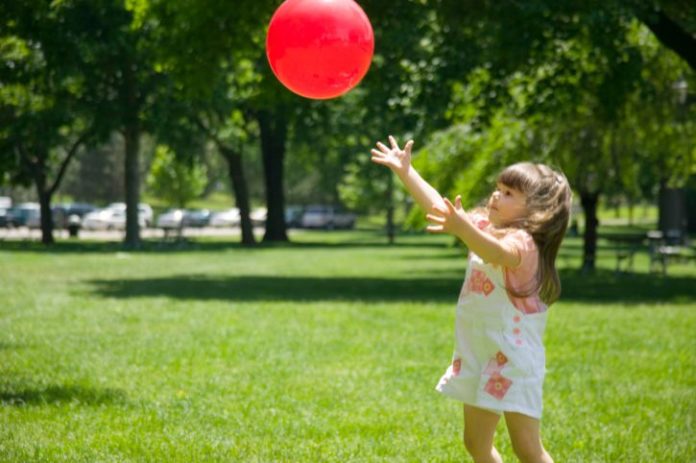Preschools could hold the key to kids developing a life-long interest in physical activity.
Researchers with Deakin University’s School of Health and Social Development, with colleagues from Northern NSW Local Health District, evaluated a movement skills program run by NSW Health in 18 NSW preschools. The study, published in the International Journal of Behaviour Nutrition and Physical Activity, found that there were lasting effects in terms of children maintaining their skill levels three years after taking part in the program.
“Running, jumping, skipping and throwing a ball might seem like simple skills for children to develop. However, these movement skills do not come naturally,” explained Deakin’s Dr Lisa Barnett.
“Children need the opportunity to develop these skills.
“It is important that we know how to increase children’s movement skills because children with better fundamental abilities have been shown in my previous research to become fitter and more active adolescents compared to those who have poorer movement skills.
“The results of this study, and the success of the program, point to preschools as being a key setting for ensuring children develop movement skills.”
The 10-month movement skills program, ‘Tooty Fruity Vegie’, was run in 18 preschools in NSW during 2006/07. A further 13 preschools acted as a comparisons, with the program not running in these locations. The program consisted of two terms of 10 sessions, with each session repeated twice per week.
The children were assessed at ages four, five and eight years for their movement skill proficiency. Two groups of skills were assessed – locomotor skills (e.g. running, jumping, hopping) and object control skills (e.g. ball handling skills such as kicking, throwing, and bouncing a ball).
At age five both the object control and locomotor skills of boys and girls in the program preschools had improved. By age eight (three years after the end of the program), girls were still ahead in ball skills compared to girls who had not taken part. However, the boys who were not in the program had ‘caught up’ to the program boys in their ball skills. There was also no longer any difference in the locomotor skills of the children.
“This shows that boys, who do not have ball skills prior to school, are likely to develop these skills through environmental opportunities provided during early primary school and/or from home and community life,” explained Dr Avigdor Zask, evaluator of the original successful program, co-investigator on the present follow-up study and program coordinator with Northern NSW Health Promotion.
“We know though that most girls do not develop ball skills. The latest Australian data from the NSW Schools Physical Activity and Nutrition Survey shows that in Year 4 (the time it is considered children should have these fundamental skills), very few girls had either mastered or nearly mastered three ball skills (8 per cent for the kick, 11 per cent for the over-arm throw and 43 per for the catch),” Dr Zask said.
“It is heartening that the preschool program has made a lasting difference to girls’ skills.”
Dr Barnett said that while the program seemed to be of greatest benefit to girls, it would still be beneficial to see similar programs placed on the preschool curriculum.
“Even though the eight year old children in the program were no better at locomotor skills than comparison children, the acceleration of locomotor skill proficiency between the ages of four and five may have helped in other ways which this study did not assess. For instance, to have a higher perceived sports competence, so we would still recommend that both types of skills are taught to children during their preschool years.”
Source: Deakin University Australia











